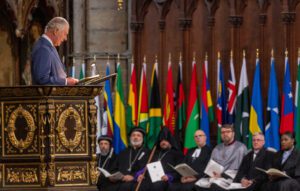Family carers are an invisible force who care day in, day out for sick or disabled loved ones, without receiving payment and with little chance of respite. The effects of caring on the physical and mental health of carers can be devastating. Carers often face loss of employment, missed education opportunities, and social isolation due to their caring responsibilities.
Carers’ needs have traditionally been neglected by Governments, NGOs and other agencies in low and middle income countries. Since 2012 we have been working in The Global South to improve the lives of carers and to advocate for official recognition of the important role they play in society. Our vision is a world in which the needs of every carer – physical, emotional, economic and social – are routinely met. We want to achieve this through building strong partnerships with our carers, their families and wider communities, as well as with local, national and international NGOs, Governments and academics.
‘Our holistic “Carers Worldwide Model” […] is designed to create systemic changes for carers’
In 2014 we received funding from the Commonwealth Foundation to implement a three year project promoting the recognition and inclusion of carers in three states of India: Jharkhand, Andhra Pradesh, and Karnataka. Working with three local partners in India, this project focused on developing the capacity of carers and ensuring carer-specific services were developed to lessen the burden of caring. This involved disseminating our holistic ‘Carers Worldwide Model’ which is designed to create systemic changes for carers. The model comprises carers’ support groups; access to health services; respite and short breaks; access to employment, training and education; and advocacy activities. Our model is successful because it addresses the needs of carers at all levels – emotionally, physically, mentally and economically and encourages carers to advocate for themselves.
The results of the project exceeded expectations. A total of 1,963 carers as well as 2,012 care recipients and approximately 9,800 additional family members benefited. The benefits obtained by the carers included the establishment of new livelihood activities, access to medical and counselling services, and being provided with respite breaks. As a result of their advocacy activities, 90% of the carers involved in the project are now also accessing government or other NGO programmes and schemes. Such schemes include the Mahatma Gandhi National Rural Employment Guarantee Act – an employment guarantee scheme for the rural poor from which carers were previously excluded. As a result of the project 431 carers are now accessing employment through this Act.
| Caregiver support groups | To reduce loneliness and isolation, create social networks and support emotional wellbeing |
| Health services | To provide access to physical and mental health services, including locally available counselling services |
| Respite and short breaks | To offer a break from caring responsibilities along with the development of alternative high-quality care options such as day care centres |
| Employment, training and education | To facilitate access to employment, training or education, tailored as appropriate to co-exist with caring responsibilities |
| Recognition | To strengthen the collective voice of caregivers to advocate for their needs and the provision they require at community, regional and national level, leading to changes in policy and practice |
To increase impact at a district level, 148 village level carers groups were federated into three Carers Associations, one in each of the three project states. Each Carers Association is comprised of carer representatives who have been elected by the village level carers groups. The Associations meet quarterly to formulate responses to issues raised in the village groups, plan engagement with government officials and other stakeholders, and to organise events at district level. Government officials are now recognising the individual and collective needs of carers. For example, the Commissioner of Disability for the Government of Karnataka announced in 2018 a 100% commitment to supporting carers and scaling-up the work of our project across the state.

Last year we received further funding from the Commonwealth Foundation to develop a new project that will upscale and complement the previously funded project in India. We intend to make use of existing partnership operations, carers groups, and Carers Association networks and increase the reach we have in India. Key priorities include:
- Implementing services at a local level that directly support carers, and ensuring the services become enshrined in policy
- Designing an approach to engagement that is capable of influencing local, state and national level policy, immediately enriching our plans not only for our work in India but also further afield in Bangladesh, and informing our longer-term South Asia strategy
Leveraging the infrastructure and capacity created by our work to date, we feel that the project is positioned to capture and capitalise on the momentum already created at village and district level, and achieve significant steps towards establishing a robust civil society movement, able to petition for the recognition of the human rights of Indian carers. Through increasing momentum, we intend that this project will enhance the capacity of the Carers Associations and help sustain the representation of the population of carers overtime. Ultimately, we anticipate that this new funding will support the project’s transition from a grassroots carers initiative, to a robust movement of civic society poised to achieve the aims of a global strategy to reach 100,000 carers and their family members by the end of 2019.
To find out more about this current project and to learn about our other work, please visit our website and our Facebook page today.
Victoria Nicholson is a Communications Officer at Carers Worldwide.









